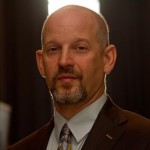Gershon Baskin, Israeli director of an Israeli/Palestinian think tank, fears that the window of opportunity for a two state solution is rapidly closing
Twenty Arab leaders and Palestinian President Mahmoud Abbas recently met with Israeli Prime Minister Ehud Olmert in Annapolis to relaunch peace negotiations; President Bush just completed his first trip to the region, where he reiterated his intention to achieve a treaty before he leaves office and named Lt. Gen. William Fraser as his envoy; and Israel and the Palestinians have begun to discuss “core issues” such as Jerusalem and the settlements.
Everything we’ve asked for – negotiations over substantive issues with the full diplomatic backing of the United States – has come true. Why, then, do we feel such apprehension?
One need look no further than the facts on the ground: During our visit, settlers responded to the president by expanding new outposts; a faction pulled out of Olmert’s coalition, rejecting efforts to revive negotiations; and Israeli officials announced that any settlement freeze wouldn’t touch the main settlement blocs – including East Jerusalem, a make-or-break issue for Palestinians. Furthermore, the expected publication of the second Winograd Report, assigning blame for Israel’s blunders during the 2006 Lebanon War, may force Olmert to resign.
As we followed in Bush’s wake – meeting with Olmert and other Knesset members, Palestinian Prime Minister Salam Fayad, and journalists, academics and peace advocates on both sides – a picture emerged: Unless substantial progress can be achieved before 2009, when Bush and Abbas both leave office, the possibility for a two-state solution may all but disappear.
We spent our time listening to as many Israelis and Palestinians as we could. We toured Hebron with Yehuda Shaul, a former Israeli soldier who has made it his mission to bring the suffering of that city’s Palestinians to light, and toured East Jerusalem with Danny Seidman, a lawyer who works to expose and halt unilateral Israeli actions that create obstacles to peaceful settlement. We observed Palestinians as they attempted to pass through just one of Israel’s 546 checkpoints at the end of their workday. We met with the general secretary of Kibbutz Metzer, whose residents, despite a 2002 terrorist attack in which five members were murdered, continue to work toward coexistence with their Palestinian neighbors.
We heard a mixture of optimism and frustration from former Israeli Foreign Minister Yossi Beilin, coauthor of the Geneva Accord (an unofficial draft of a peace treaty), who told us that Olmert now speaks like a peacemaker but has failed to make any concrete changes on the ground. We heard worry from journalist Akiva Eldar and Gershon Baskin, Israeli director of an Israeli/Palestinian think tank, who fear that the window of opportunity is rapidly closing. And we heard a solemn commitment from Olmert to make exceptional efforts to reach a peace agreement within a year, even as his coalition lost 11 members and more than 50 rockets rained down on southern Israel. The next day, Fayad spoke at length about progress already achieved on security matters and complained about Israel’s failure to clearly state a commitment to freeze settlements.
It was an emotional roller-coaster, and we came away more convinced than ever to do all that we can to ensure that Bush’s words become action. We’ll share our experiences with our nearly 40,000 supporters, and reach out to others – including the 87 percent of American Jews who support a two-state solution to the conflict. We’ll call on our elected representatives, presidential candidates and the president himself to employ our country’s considerable resources in engaging Israelis and Palestinians in making the difficult compromises that true peace demands. Fraser must be authorized to present bridging proposals to overcome differences, and a separate back channel must be established to allow for negotiation breakthroughs.
Because we love Israel, we will aggressively advocate for that which it most needs: peace.
Let’s hope that the president, too, returned home with renewed determination, and that Olmert and Abbas have the courage to take him up on his pledge to press the negotiations forward.
Steve Masters, of West Mount Airy, serves on the board of the Jewish Community Relations Council of Greater Philadelphia. He is president of Brit Tzedek v’Shalom, the Jewish Alliance for Justice and Peace.


